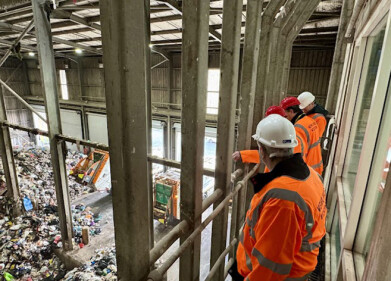Waste management
Food is the largest waste in Saudi Arabia
Nov 01 2012
Wastefulness has reached new levels in Saudi Arabia, as it has been revealed that food is the number one contributor to the waste in landfills.
This is not a wholly surprising statistic, as a lot of the culture in the country is based on festivals that have huge quantities of food. Families make more than enough food for Eid festivals, weddings, parties and informal get-togethers.
Consequently, a lot of this food gets wasted.
"Not wasting food is a tough challenge in a culture where food is so readily thrown away. Several people in my neighborhood throw their leftover food in the garbage," said Javed Sheikh, a local resident of Jeddah to Waste Management World.
Another issue that the country has is that they buy mainly fresh food. Any food that is not considered to be fresh will be thrown away as it is thought to be unhealthy.
Tinned food keeps a lot longer than fresh food, so is less likely to be chucked in the bin.
Those who are prone to wasting food are encouraged to plan ahead when it comes to their meals. Not only will this save them money, it will prohibit further waste.
Waste management cannot be dealt with properly, as the food waste is not separated from other waste
Instead, restaurants and families dump food along with damaged goods which could be recycled.
"Many eating places serve huge portions, which very few people eat. All the leftovers are unnecessary waste when just addressing the size of portions would probably resolve the matter," the resident advises.
Food waste is not just an ethical issue, with many people thinking it is immoral to throw food away. It also affects the environment.
Excess food is an untapped energy source that mostly ends up rotting in the landfills and releasing harmful green house gasses into the atmosphere.
Events
Apr 15 2025 Moscow, Russia
Apr 21 2025 Shanghai, China
May 11 2025 Vienna, Austria
May 18 2025 Algiers, Algeria
23rd International Water Management Exhibition
May 20 2025 Prague, Czech Republic














